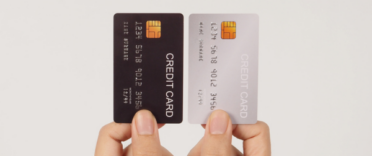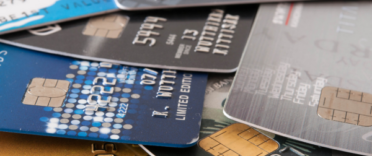 Thanks to credit card pre-approval, you do not need to apply for a particular credit card in order to find out how likely you are to get it. Credit card pre-approval can tell you whether you have a strong chance of getting that card, though it is not a certainty. Being pre-approved for a credit card can save you from credit card rejections and trial-and-error tactics that can impact your credit score. However, the term 'pre-approved' is confusing, if not misleading as you may not be successful in applying for a credit card you have been pre-approved for. In this article, we clarify what credit card pre-approval means, why it can be helpful and how to make it work for you.
Thanks to credit card pre-approval, you do not need to apply for a particular credit card in order to find out how likely you are to get it. Credit card pre-approval can tell you whether you have a strong chance of getting that card, though it is not a certainty. Being pre-approved for a credit card can save you from credit card rejections and trial-and-error tactics that can impact your credit score. However, the term 'pre-approved' is confusing, if not misleading as you may not be successful in applying for a credit card you have been pre-approved for. In this article, we clarify what credit card pre-approval means, why it can be helpful and how to make it work for you.
What does pre-approved mean?
Being pre-approved for a credit card means that the card provider will approve your application if you make one, assuming the information it has on you is correct. It is also on the assumption that it will go on to conduct a successful hard credit check, relevant fraud checks and correct ID confirmation. It is important to note, therefore, that credit card pre-approval always comes with the caveat that there will be additional checks made when you submit a full application. You can be pre-approved for a credit card through a third-party service or directly by the credit card provider.
Credit card pre-approval means that you may avoid applying for cards that you are likely to be rejected for. You can seek out the best card that you are pre-approved for and apply, confident that you have a strong chance of being fully approved. The alternative would be applying for the best credit card on the market without pre-approval, which would carry the risk of your application being rejected. You would then move on to the next best credit card, but with your credit file showing the first failed application. This would make it less likely that the second provider would accept you, possibly adding another rejection to your file. Multiple credit applications in a short period of time could suggest that you are struggling to access credit and manage your finances, which can put off lenders.
Finding the best credit card for you
Money to the Masses has partnered with Creditec* to help find the best credit card for you. By entering a few basic details, you will be able to see a tailored list of the best credit cards based on your individual circumstances. You can sort your results by the feature that interests you most, such as by card type, total fees or cashback offered. On top of this, the credit cards that have been pre-approved for you will be highlighted, meaning you can be more confident that you will be accepted if you apply. (Pre-approval does not guarantee acceptance and is still subject to additional lender checks). Your details will be used to conduct a soft credit search often referred to as an eligibility check, which means your credit score will not be affected. Click on this link to get started*.
The benefits of pre-approval
As well as confidence that your application will be approved, credit card pre-approval also comes with a few other key benefits:
- Guaranteed interest rates - If you are pre-approved for a credit card, you will likely see a guaranteed interest rate figure. This is only guaranteed if your application is successful of course, but it does give you a good idea of the value of that card versus competitors. Without pre-approval you can only compare cards by the representative APR (annual percentage rate), which is the rate a provider expects to offer at least 51% of successful applicants, so not necessarily the rate you will get.
- Guaranteed credit limits - Some cards will also show a guaranteed credit limit when you are pre-approved. This is valuable because you would usually not know how high your credit limit will be until you have submitted a full application. You may see an illustrative credit limit, or a credit limit range advertised with a card. However, knowing exactly how much you can spend up to if you are successful in getting the card is a big bonus, especially if you have a specific purchase in mind.
How does credit card pre-approval work?
Credit card providers are generally able to gain enough insight into your finances through a soft credit search to offer pre-approval. For example, they can learn your current address, salary and employment status. This does not harm your credit score or leave a mark on your credit file. Pre-approval can also come through one of many third-party services that match the information you provide with the criteria supplied by a credit card company. Another option would be a lender that you have an existing relationship with using the data it holds to match you to a credit card. The provider would then contact you to inform you that you have been pre-approved for a credit card, even if you have not shown any interest in applying for one.
Whichever way you are pre-approved for a credit card, the key factor is that the information that has been either provided by you or drawn from a soft credit check indicates to a credit card provider that you can afford to repay the credit you use. However, it is not a guarantee and you will need to pass an affordability test and credit check as part of a full application.
Can you be rejected if you are pre-approved?
Yes. Credit card pre-approval significantly cuts down the chances of you being rejected for a credit card, but it does not guarantee your application will be accepted. The credit card provider will carry out more in-depth checks – such as ID and fraud checks – and commission a hard credit check during the full application process. You may also need to provide certain documents to prove your address or income. This is the point at which your application could fail, even if you have been pre-approved.
You could also be rejected despite pre-approval if there are discrepancies between the information collected during the pre-approval process and what you submit in your full application. This could come about because the information held by a credit reference agency or credit card provider is out of date. If you then put the up-to-date information into your application, it could trigger a rejection.
One way to avoid this scenario is to check your credit reports with the major credit reference agencies and make sure it is correct before you apply for any credit. You can find out how to check your credit report for free in our article ‘The best way to check your credit score for free’.
What details do you need for credit card pre-approval?
In some cases, you will not need to provide any details at all to be pre-approved for a credit card. You could get a letter in the post, an email or an online message to tell you that you are eligible for a particular card. This is because a credit card provider has been able to draw enough information from a soft credit check to satisfy its pre-approval criteria.
If you are looking to check your eligibility online and get pre-approval for a certain card, you will have to give some basic personal information, including:
- Personal information - This will usually include your full name, date of birth, nationality and marital status.
- Address details - You will likely need to supply your current address, past addresses to cover a certain period of time and whether you rent your home, own the property or live with family.
- Finance and income - You will need to provide your annual income and how much you spend on your rent or mortgage payments each month. If you are a parent, some providers may ask for additional information such as childcare costs.
How to get pre-approved for more credit cards
There are two major ways of increasing your chances of being pre-approved for more credit cards. The first way is to improve your credit score, the second is to cut down your existing debt.
Your credit score measures how creditworthy you will appear to lenders based on the information in your credit file. The exact number can vary depending on which of the major credit reference agencies you check with. Check out our independent reviews of the UK's main credit reference agencies Experian, Equifax and TransUnion. Checking and then improving your credit score should make a difference to how many credit card providers are willing to pre-approve you. We go through our top tips in our article ‘How to improve your credit score quickly’.
If you have a particularly low credit score, or you have had problems with debt in the past, you may need to rebuild your credit score with a credit builder credit card. Using a credit builder card responsibly will, over time, build up a record of reliable borrowing and timely repayments. Find out more in our article ‘How to build your credit score with a credit card’.
The second option – clearing your debt – can be a bit more tricky. Credit card companies will only offer you credit if they think you have enough money coming in to pay off the debt you build up with them, plus any debts you owe elsewhere. This could mean that you need to focus on cutting your debt before you try and apply for a new credit card. If you are struggling to manage your debt, it may be time to get some free help and advice. Read our article ‘Where to get free debt advice’ to see a list of the free, independent debt help organisations in the UK and how they can help you.
If a link has an * beside it this means that it is an affiliated link. If you go via the link Money to the Masses may receive a small fee which helps keep Money to the Masses free to use. But as you can clearly see this has in no way influenced this independent and balanced review of the product.






